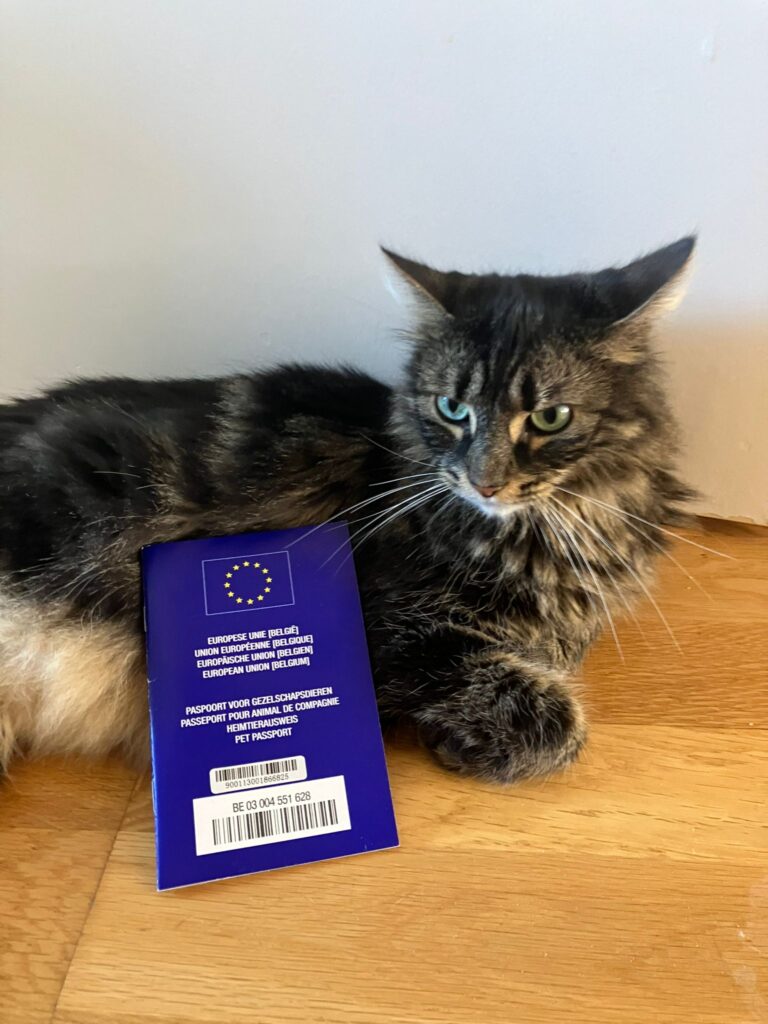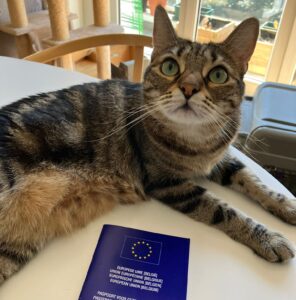How to travel with pets with EU documents

Brussels – For pet owners, vacations also mean dealing with the problem
of where and with whom to leave their pets while travelling by plane, train, ship or bus to their summer destination. However, a solution is available for those who wish to take their pets with them; all that is required is a few documents to allow pets to
travel to other EU member states (and beyond). All you need is a European passport or an EU health certificate.
UE regulations allow dogs, cats, and ferrets to travel between the 27 EU member countries and from non-EU countries to EU countries. This requires a “clearly readable” microchip or tattoo (if applied before July 3, 2011), the rabies vaccine, proof of treatment against the Echinococcus multilocularis tapeworm if the destination is free of this tapeworm (Finland, Ireland, Malta, Norway and Northern Ireland) and a document: A European passport if travelling within the EU or from Northern Ireland, or an EU health certificate if travelling from a non-EU country.
The European pet passport is a document that follows a standard Union template and contains a description and details of the animal: microchip or tattoo code, rabies vaccination record, contact details of the owner and the veterinarian who issued the passport. A European pet passport can be obtained from any veterinarian licensed by the competent authorities and is valid for life, provided the animal’s rabies vaccination is current. The Union recognizes pet passports issued by Andorra, Switzerland, the Faroe Islands, Gibraltar, Greenland, Iceland, Liechtenstein, Monaco, Norway, San Marino and the Vatican City State.

The EU Health Certificate, on the other hand, is a type of document that contains specific information (identity, health, rabies vaccinations) and is still based on a standard EU template, but in this case, it is required if travelling from a non-EU country to an EU one. The EU health certificate must be issued by an official veterinarian in the country of departure no more than ten days before arrival in the Union, and it is valid for four months for intra-EU travel or until the rabies vaccination expires (whichever comes first). In addition, a written statement that the animal’s transfer is due to noncommercial reasons must be attached. As of January 1, 2021, EU pet passports issued in Britain (not Northern Ireland) are no longer valid for travel to EU member countries or Northern Ireland, and an EU health certificate is therefore required.
English version by the Translation Service of Withub
Related
Brits forced to pay fee to visit these 30 countries…
UK tourists will be required to pay a fee to visit 30 countries in Europe under new European Union (EU) travel rules.The rules mean British holidaymakers will n
The beautiful European island with just 148 locals
Irakleia is a beautiful island in the Minor Cyclades of Greece, nestled in the heart of the Aegean Sea and just an hour away from Naxos. Officially recorded t
Warning issued for Brits flying easyJet and Ryanair to popular…
Passengers flying with Ryanair, easyJet and British Airways should expect disruption (Picture: Urbanandsport/NurPhoto via Getty Images) Passenge










